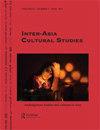Bengali bhadralok and the Bengali press: a study of the early nineteenth century
IF 0.4
4区 社会学
Q4 ANTHROPOLOGY
引用次数: 0
Abstract
ABSTRACT Bengal occupies a special position in the history of Indian journalism as the journey of the first English newspaper and, after that, the first vernacular newspaper, started from here. The country had the tradition of writing newsletters, but newspapers were a European import. Unlike other means of communication, newspapers were free from direct government control and they flourished mostly as private endeavours. This apparent independence was often undermined by the indirect influence exerted by the state which was run by a mercantile company in the first half of the nineteenth century. The present paper probes to seek the reasons behind the late arrival of newspapers in Bengal/India, then their negotiations with the state power and finally their reincarnation in the hands of the socio-religious reformers of the Bengali bhadralok section. The Bengali press burgeoned under the patronage of this group, which can be closely linked with the bhadralok’s intent of appropriating and communicating knowledge. To fulfil this aim, they also established different Sabhas or associations and brought out newspapers as the mouthpiece of those organisations. These Sabhas and the newspapers associated with them worked together in establishing the locations of knowledge production and its dissemination; thus, influencing public debates in the first half of the nineteenth century.孟加拉巴德拉洛克与孟加拉报刊:十九世纪早期的研究
孟加拉在印度新闻史上占有特殊的地位,因为第一份英文报纸和之后的第一份本地报纸都是从这里开始的。这个国家有写时事通讯的传统,但报纸是欧洲舶来品。与其他通讯手段不同,报纸不受政府的直接控制,它们主要是作为私人企业而蓬勃发展的。这种表面上的独立性常常被19世纪上半叶由一家商业公司管理的国家施加的间接影响所破坏。本文探讨了报纸在孟加拉/印度姗姗来迟的原因,然后是它们与国家政权的谈判,最后是它们在孟加拉巴德拉洛克(bhadralok)部分的社会宗教改革者手中的轮回。孟加拉媒体在这个团体的赞助下迅速发展,这与巴德拉洛克占有和传播知识的意图密切相关。为了实现这一目标,他们还建立了不同的协会,并出版报纸作为这些组织的喉舌。这些Sabhas和与之相关的报纸共同努力建立知识生产和传播的地点;因此,影响了19世纪上半叶的公共辩论。
本文章由计算机程序翻译,如有差异,请以英文原文为准。
求助全文
约1分钟内获得全文
求助全文
来源期刊

Inter-Asia Cultural Studies
Multiple-
CiteScore
0.90
自引率
20.00%
发文量
22
期刊介绍:
The cultural question is among the most important yet difficult subjects facing inter-Asia today. Throughout the 20th century, worldwide competition over capital, colonial history, and the Cold War has jeopardized interactions among cultures. Globalization of technology, regionalization of economy and the end of the Cold War have opened up a unique opportunity for cultural exchanges to take place. In response to global cultural changes, cultural studies has emerged internationally as an energetic field of scholarship. Inter-Asia Cultural Studies gives a long overdue voice, throughout the global intellectual community, to those concerned with inter-Asia processes.
 求助内容:
求助内容: 应助结果提醒方式:
应助结果提醒方式:


